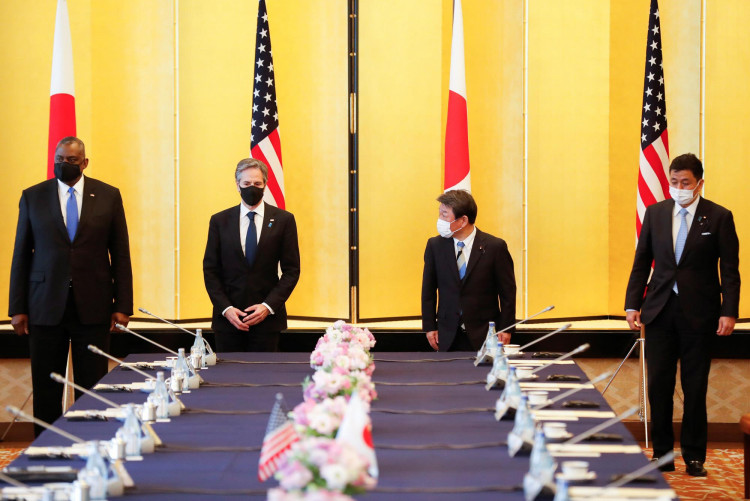The Japanese Defense Ministry plans to station 500 to 600 Ground Self-Defense Force (GSDF) missile units on Ishigakijima in Okinawa Prefecture, bolstering allied powers to fight China's area denial operations in the first island chain.
On Tuesday, Defense Minister Nobuo Kishi told reporters that the government planned to send anti-aircraft and anti-ship missile units to the island, which is only 185 miles from Taiwan and even closer to the disputed Senkaku Islands.
The official stated that it is also contemplated as part of the defense budget for 2023 that there should be additional electronic warfare units on Yonaguni, the westernmost inhabited island of Japan.
Kishi said the deployment schedule has not yet been determined, but the defense ministry appears to be aiming towards the end of 2022, according to Tokyo's Yomiuri Shimbun.
The report pointed out that the increased ground forces are likely a direct response to China's growing blue-water navy, which has recently sailed between the Miyako Strait and conducted Pacific drills.
If the plans are carried out, Japan will have fortified the Western Pacific's first island chain by putting more missile defenses on four Okinawa islands, including Miyako and the main Okinawa island, where the bulk of forward-deployed U.S. troops are stationed.
Analysts believe China is developing anti-access and area denial (A2/AD) systems around the first island chain choke points to keep American forces out of a regional clash, most likely over Taiwan.
However, because Chinese carriers and warships are expected to deploy to the east of Taiwan rather than enter the narrow Taiwan Strait during a confrontation, Japan's A2/AD capabilities could be critical in stopping enemy ships from entering the Pacific.
China's coast guard activities in the Senkaku Islands, which it also claims under the name Diaoyu, were mentioned in Japan's annual defense white paper on July 13. In addition, the document included a historic first reference to Taiwan's security.
Japan has conveyed both formal and informal signals in recent weeks implying that Taiwan's democracy is inextricably linked to its own national security.
The Chinese Foreign Ministry has expressed its displeasure with what it sees as foreign meddling in its internal affairs.






